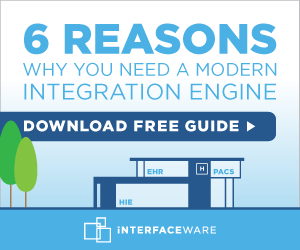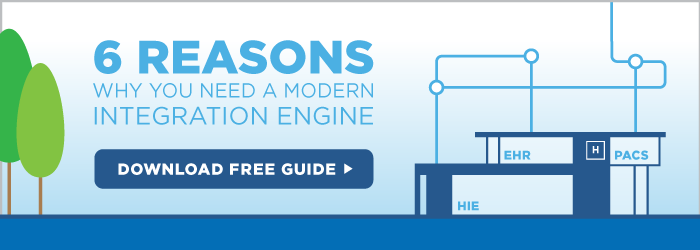Implementing a modern integration engine can do wonders for improving operational efficiencies in hospitals. Everything from happier and more productive nurses to higher patient satisfaction and huge costs savings can be accomplished by using an integration engine that connects all of your systems. The key to achieving all of these things is to realize the domino effect that one workflow improvement can have on the rest of your hospital.
Let me explain.
There are the obvious and immediate benefits of using an integration engine in a hospital to improve workflows. Nurses, for instance, spend less than half of their day attending to patients because they are often required to input patient data into multiple systems. With a robust integration engine, nurses are able to save countless hours because they only need to enter patient data into a single system instead of several.
Now let’s look at the domino effect of how this one workflow improvement can positively impact numerous hospital operations.
- Increased job satisfaction for nurses. Nurses are able to spend more time doing what they love (taking care of patients) and less time doing what they don’t particularly enjoy (entering data into systems). This, in turn, leads to…
- More productive nurses. There is a direct correlation between job satisfaction and productivity. A study by economists at the University of Warwick concluded that happy employees are 12% more productive.
- Better patient care. Less time spent doing data entry means that nurses can spend more time caring for their patients. Studies have shown that patients are less likely to become infected or be a victim of a medical error when nurses are at their bedside. Furthermore, patients tend to be more satisfied with their hospital visits when nurses spend more time with them. Of course, happier patients can result in…
- Huge cost savings. With the Pay for Performance model becoming more common, it is vital for hospitals to make sure that their patients are happy with the care they receive. How patients rate their hospital experience is directly linked to financial reimbursement from insurers such as Medicare. In the very literal sense, hospitals can no longer afford for patients to be dissatisfied with the level of care they receive.
I could go on, but the point of this example is to show how just one of the benefits of using a robust integration engine (in this case, nurses eliminating repetitive data entry) can have a tremendously positive effect on the entire operations and care process throughout your hospital.


